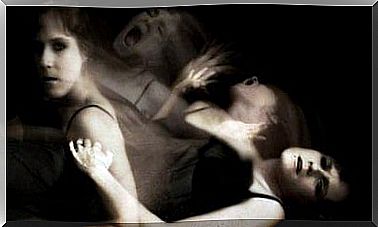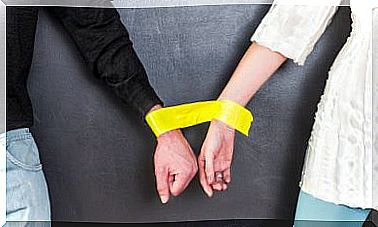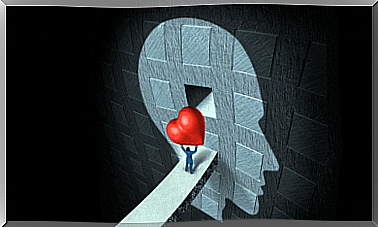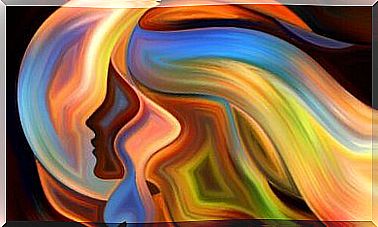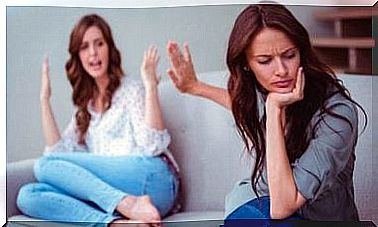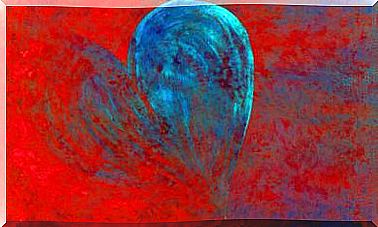The Skill Of Being A Coward
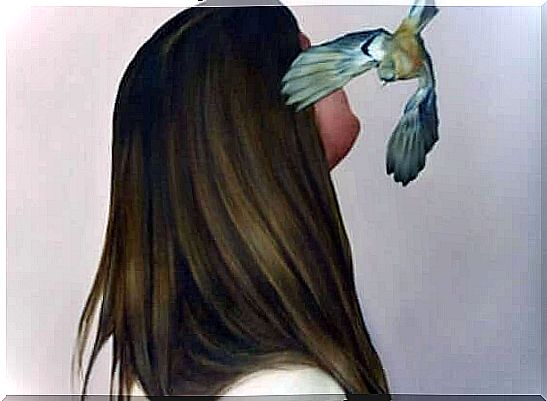
Do you know someone who could be called a coward? Why would you describe him that way? Can you justify this belief? At work, in our family, or in a group of friends… we all have someone close to us that we can call a coward. Cowardice is one of the basic characteristics of humanity. While it is often condemned and stigmatized, we forget that in certain cases it is a very adaptive strategy for us.
We can all certainly look back in our lives and find several situations where we felt doubt. We might wonder what the outcome would have been if we had acted differently in those situations. Perhaps when you analyze these situations, we can see that cowardice was behind many of these doubts.
Cowardice goes hand in hand with fear and conformism. They are inseparable. If there is no fear behind it, it is not cowardice; it may be just a desire for comfort, but not cowardice. You can be a coward in many ways: on a mental level, on a behavioral level, or even on a cognitive level.
What makes a coward?
There are many ways to show cowardice. The most obvious of all is reflected in the behavior. Behind what we feel or think are moments when the situation requires us to act, but we don’t act. It’s a reflection of “unresponsiveness,” paralysis, uncertainty — we can try to form thousands of arguments. This is the best known and most visible form of cowardice. We can easily recognize it in others and even in ourselves. In moments when we don’t say “I love you,” “leave me alone,” or “no, it’s your job, do it yourself”…

How many times have we ignored sad thoughts instead of confronting them? We can also be cowards on the level of thought. Maybe there is an idea, situation, or even memory that bothers or scares us. Instead of taking the time to process it, we try to ignore it even though we know it’s pain in our stomachs and pressure in our chest. When others bring it up, we avoid, change the subject, or show forced indifference.
Finally, there is also the mental coward. He decides not to feel so he doesn’t suffer. He finds the emotions complex and his solution is to run them away. Others may not understand him, but he who escapes fear, sorrow, love, or anger has his own reasons for it. It can be due to difficult, past relationships, childhood trauma that has made it difficult to express empathy, or even bad adult experiences that make you feel fear of losing control.
Why do we behave this way?
Whether we were cowards ourselves or someone we know, a sense of cowardice can lead to incomprehension, disappointment, or even anger. Why do we act like a coward? Both, the brave and the cowards, have the same answer. Much of our courage is related to the number and quality of our skills and personal learning.

Fear is a feeling shared by all. However, cowardice is an attitude – a position we adopt when faced with fear. When fear is encountered, one can still act, it is logical and human. The aids we have picked up to control our emotions and respond in a balanced way can help us. We can use strategies to solve problems, create alternatives, and guide our behavior in one way or another.
All in all, cowardice is a trait that we all need to address, be it within ourselves or other people. We would do well if we trusted in empathy and tried to understand (but not necessarily support) the motives that have incited cowardice. If there is fear behind it, develop ways to learn, listen to others, reflect, share fears, and teach yourself to get over them.
In work life, in personal relationships or even in activities that terrify you… fight cowardice. Remember, things are not black and white, all or nothing. There are steps in everything, and step by step we can leave cowardly thoughts, actions and feelings behind us.
